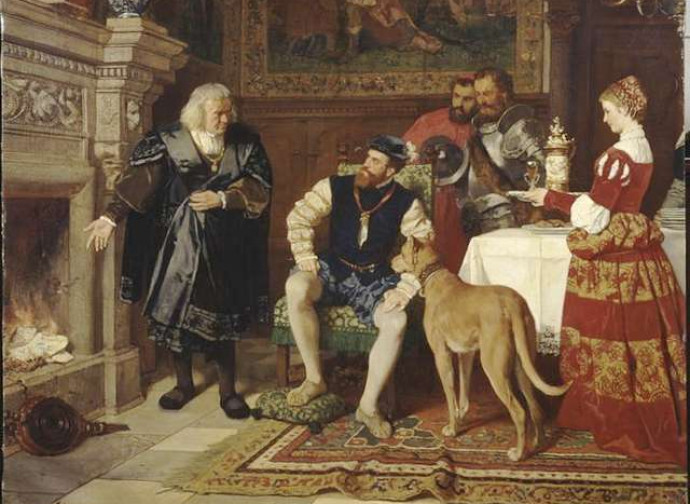Catholic Church needs the rich for its mission not pauperism
Money is not evil in itself, but a tool that, if used wisely, can be used to build good. Progressivism preaches a poor church just because it wants to replace it.

In recent months, the scandal involving the United States Agency for International Development (USAID) has rocked governments and flooded newspapers around the world. The allegations of improper funding, aimed more at ideological warfare than humanitarian aid, and the subsequent decision by the Trump administration to turn the page, have brought to light an often neglected truth, as simple as it is forgotten: only those who have the money can fund and disseminate institutions and ideas, and influence public opinion. It is essential that Catholics recognise and rediscover the importance of owning and managing economic resources well in order to promote their values in society.
The progressive left has long understood the importance of controlling financial resources to promote secularisation and the 'woke' agenda. Through large funds, it supports initiatives that often go against the traditional principles of the church. At the same time, it preaches to the Church (and from within the Church) the ideal of evangelical poverty, certainly not out of respect and reverence, but in order to disarm it both socially and politically. This deception of pauperism is based on the false association between wealth and materialism, suggesting that a poor Church is also more spiritual, when in fact it is only more miserable. This vision has Marxist roots, according to which the wealth of one necessarily implies the impoverishment of the other, and confers oppressive power on the richer.
But if we look at history, a different picture emerges. From the earliest centuries, the Church used vast economic resources to spread the Gospel and build Christian civilisation. In the Middle Ages, with the support of benefactors and loyal monarchs, the Church was able to establish schools, universities and hospitals that became centres of knowledge and care that shaped the Western world. Religious orders such as the Benedictines and Franciscans preached a simple life but managed vast estates, which enabled them to support entire communities and to preserve and increase knowledge.
During the Renaissance, the great Catholic families of Italy and Spain financed the construction of basilicas, monasteries and works of art that still bear witness to the greatness of Christian civilisation. In France, the monarchy and the aristocracy supported the Jesuit missions that brought the Gospel to Asia and America. Consider the great Bavarian Catholic banker Jacob Fugger, banker to the popes and a personal friend of Emperor Charles V of Habsburg. In the 19th century, figures such as St John Bosco used donations and resources to create educational institutions that took thousands of young people off the streets and offered them a better future. Even in the 20th century, it was only thanks to the funding of wealthy Catholics that it was possible to build schools, independent media and pro-life movements.
Given this historical reality, it is clear that the rejection of wealth as an instrument of the apostolate is a strategic error that has allowed the progressive left to conquer large sectors of society. Those who control the media, education and cultural institutions are in a position to shape the collective mentality by determining what is considered acceptable and what should be excluded. For this reason, it is more important than ever that Christian millionaires and billionaires emerge who are aware of the cultural battle that is taking place.
Looking to the future, Catholics must think big and not be afraid to do so. Funding individual projects is good, but more can be done: a long-term strategy is needed to create an alternative economic ecosystem capable of supporting schools, universities, newspapers, television stations, publishing houses and digital platforms. We need a new class of Catholic entrepreneurs willing to use their influence to defend the enduring values of true Western civilisation, the one built on the pillars of Greek anthropology, Roman law and the Catholic faith. The model of the great progressive foundations shows that long-term and structured investment can change the culture of a country, or even the world. Why shouldn't Catholics do the same?
Money is not evil in itself, but a tool that, if used wisely, can be used to build good and to counter the forces that threaten Christian civilisation. The Church needs saints, but it also needs enlightened and courageous benefactors.
